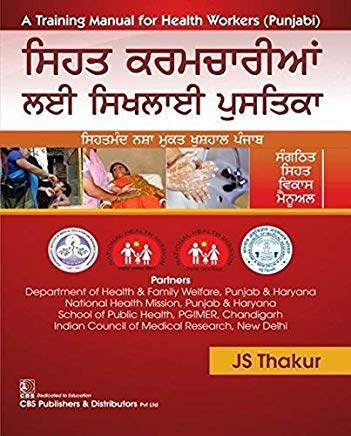A Training Manual For Health Workers (Pb 2019) (In Punjabi)
J S Thakur is currently professor School of Public Health Department of community medicine postgraduate Institute of Medical Education and research Chandigarh India.
The Manual has evolved out of two years of operational research undertaken to strengthen IEC/health promotion component under National Health Mission in the project “Development of an integrated model of health promotion in a district setting” undertaken in districts of Hoshiarpur in Punjab and Ambala in Haryana, from 2013 to 2016 common risk factors for communicable diseases (CDs), noncommunicable diseases (NCDs), injuries and RCH issues such as unhealthy diet, physical inactivity, smoking, substance abuse, harmful use of tobacco and alcohol, negligence in road safety, stress, unsafe water, lack of personal and oral hygiene, etc. have become the leading determinants for morbidity and mortality worldwide. Among NCDs, a majority of all deaths in the world are caused by cardiovascular disease, diabetes, cancer, and chronic respiratory diseases. These diseases affect productivity and drain family resources so adversely that they have become a major threat to the economic and social .











